Discover versatile, high-quality cast acrylic from Piedmont Plastics, ideal for durable, customizable applications across various industries. Contact us for tailored solutions.

Cast Acrylic
"Durable, clear, lightweight cast acrylic for versatile applications and industries."
-
Fabrication Support
Cut-to-Size, Routing
-
Local
Inventory Stocking
-
National
Inventory Access
Product Overview
Widely used for:
Performance Characteristics:
Typical Properties of Cast Acrylic
Common Properties
- Common Brand Names OPTIX®, ACRYLITE®, CHEMCAST®, Plexiglas®, Polycast®
- Typical Thickness Size 0.06, 0.125, 0.25, 0.5, 1 in
- Typical Lengths 48, 72, 96 in
- Typical Widths 24, 36, 48 in
- Friendly Names Plexiglass, Acrylic Glass, PMMA, Perspex, Lucite, Clear Plastic
- Common Profiles Sheets, Rods, Tubes
- Common Colors Red, Orange, Yellow, Green, Blue, Purple, Black, White, Clear
- Typical Rod Diameters 0.062 – 6 in
- Typical Tube Diameters 0.250 – 12 in
Physical Properties
- Density 0.9g/cm³
- Water Absorption 0.01%
- Moisture Absorption at Equilibrium 0.03%
- Linear Mold Shrinkage 0.005mm/mm
- Melt Flow 10g/10 min
Electrical Properties
- Dielectric Strength 450V/mil
- Dielectric Constant 2.55 - 3.40none
- Dissipation Factor 0.02none
- Volume Resistivity 1.00E+15ohm-cm
- Surface Resistivity 10^14ohms
- Arc Resistance 125s
- Comparative Tracking Index (CTI) 600V
- Thermal Coefficient of Dielectric Constant NAnone
- Electrostatic Discharge (ESD) Sensitivity NAnone
- Breakdown Voltage 20kV/mm
Mechanical Properties
- Hardness, Rockwell R 115
- Tensile Strength, Ultimate 70MPa
- Tensile Strength, Yield 60MPa
- Elongation at Break 5%
- Elongation at Yield 5%
- Modulus of Elasticity 3000MPa
- Flexural Yield Strength 100MPa
- Flexural Modulus 3200MPa
- Compressive Yield Strength 100MPa
- Bearing Yield Strength 55MPa
- Shear Strength 45MPa
- Izod Impact, Notched 0.3J/cm
- Izod Impact, Unnotched 1.2J/cm
- Gardner Impact 3J
- Falling Dart Impact 3.5J
- Instrumented Impact Total Energy 4J
Thermal Properties
- CTE, linear 7.010^-5 in/in/°F
- CTE, linear, Transverse to Flow 7.010^-5 in/in/°F
- Deflection Temperature at 0.46 MPa (66 psi) 225°F
- Deflection Temperature at 1.8 MPa (264 psi) 203°F
- Vicat Softening Point 221°F
- Flammability, UL94 HB
- Max Continuous Operating Temperature 160°F
- Minimum Operating Temperature - 40°F
- Thermal Conductivity 0.2W/m/K
Regulations
- UL-94 Flame Class
- FDA
- ASTM/Mil-Spec
- USP Class VI
- FAR 25.853 Flammability
- FAR 25.853 Smoke
- Boeing/Airbus Toxicity
- D635 Self Extinguishing
- FAR 25.853 Heat Release (OSU 65/65)
- RoHS Compliant
- REACH Compliant
Literature and Data Sheets
- All Suppliers
- Plaskolite
- POLYVANTIS
- Arkema
- Piedmont Plastics
- Plastiglas De Mexico
- Spartech
-
Acrylic Sheet Fabrication Guide PlaskoliteView
-
ACRYLITE® Gallery Collection Sell Sheet POLYVANTISView
-
ACRYLITE® Satinice Technical Information POLYVANTISView
-
ACRYLITE® Signage Solutions POLYVANTISView
-
Arkema Plexiglas® G ArkemaView
-
Arkema Plexiglas® G P-95 Plexiglas® G DP-95 ArkemaView
-
Arkema Plexiglas® Perfexion™ Plexiglas® Perfexion™ UF-5 ArkemaView
-
Frame Grade Acrylic Piedmont PlasticsView
-
Piedmont Marine Grade® Solar Block™ Piedmont PlasticsView
-
Plaskolite AMGARD Acrylic Sheet No SupplierView
Premium Cast Acrylic from Piedmont Plastics
Piedmont Plastics is a wholesale distributor of high-quality cast acrylic products, including acrylic sheet, rod, and tube. Also known as plexiglass, cast acrylic is versatile, reliable, and perfect for many applications. It's made by pouring liquid acrylic into molds that can be set into various shapes and sizes, such as flat sheets or cylindrical rods and tubes. This process results in a product that is clearer, stronger, and more resistant to impact and weather than alternative materials like glass.
One of the biggest advantages of cast acrylic is its superb clarity and light transmission. It's also about half the weight of glass and much safer due to its shatter-resistance. Our customers appreciate that our cast acrylic products are easy to work with. They can be cut, drilled, and shaped to fit any unique requirement, making them ideal for everything from architectural features to retail displays.
Common uses of cast acrylic include items like signage, displays, fixtures, framing, and do-it-yourself projects. In addition, cast acrylic is often made into parts and components for industrial, marine, automotive, or manufacturing applications where precise dimensions and durability are crucial.
At Piedmont Plastics, we’re proud to be a premier supplier of cast acrylic materials in North America. If you’re interested in learning more about our product options or if you need customized solutions, contact us today! Our team is here to provide you with the expertise and materials you need to help enhance your projects.


An Expert is just around the corner.
With over 100 years of combined product knowledge and industry experience, we are confident our plastics experts can help you find a solution for your application.
Key Features of Our Cast Acrylic
Cast acrylic is a versatile and highly desirable material, known for its range of beneficial features that make it ideal for numerous applications across different industries. Here’s a detailed look at some of the key features of cast acrylic:
Lightweight yet Strong: Cast acrylic is only half as heavy as standard glass but boasts 17 times its strength.
Impact Resistant: This material resists impacts, bumps, and drops better than glass and alternative plastic materials.
Exceptional Clarity and Shatter Resistance: Cast acrylic offers the clarity of glass while being 10 times more resistant to shattering.
Versatile and Customizable: Easily machined, shaped, or laser-cut, cast acrylic can be tailored to meet your precise specifications in a variety of sizes and finishes.
Weather-Resistant and UV Protected: Cast acrylic can withstand harsh environmental elements, is moisture-resistant, and offers excellent UV resistance.
Thermally Stable and Chemically Resistant: Acrylic remains stable across different temperatures and is resistant to many common chemicals.
Cost-Effective: Cast acrylic provides a more economical alternative to glass for use in similar applications.
Each of these features contributes to the versatility and popularity of cast acrylic, making it a top choice for designers, engineers, and manufacturers looking for a reliable, high-quality material option.
Cast Acrylic Benefits
Applications of Cast Acrylic Materials
Cast acrylic is used in a wide array of applications across various industries. Some common applications of cast acrylic include:
Acrylic Signage and Displays: The clarity and durability of cast acrylic sheet make it an ideal option for retail signs, menu boards, and exhibition displays that need to withstand high traffic areas and indoor or outdoor environments.
Architectural Glazing: Cast acrylic is used for glazing applications, such as skylights, soundproof windows, and protective barriers.
Automotive Applications: In the automotive industry, cast acrylic is used for components like windshields, light covers, and interior elements.
Manufacturing Applications: Cast acrylic is widely used in the manufacturing sector for machine guards, inspection windows, and covers for equipment.
These applications, and many others, benefit from cast acrylic's unique blend of durability, safety, and visual appeal, making it a favored material across various sectors. Whether used to enhance visual merchandising or to ensure safety in industrial settings, cast acrylic provides a reliable and attractive solution.
Related Products
-
Continuous Cast Acrylic
A cost-effective alternative to cell cast sheet, continuous cast acrylic sheet is created by pouring polymerized acrylic onto steel platform, then continually heating and cooling it between highly polished steel plates to control curing and produce an exceptionally clear and stable final product.
-
Digital Acrylic
Digital acrylic is a unique plastic material that uses a distinctive polymer formulation to provide optimal adhesion for UV curing inks. Thi
-
Extruded Acrylic
Extruded acrylic is a durable, lightweight, and optically clear thermoplastic sheet, ideal for architectural glazing, display cases, exhibits, and safety partitions, offering a cost-effective alternative to glass with excellent impact resistance and weatherability.
-
Specialty Acrylic Sheet
Acrylic is a highly versatile plastic that is easily fabricated and offers superior clarity and durability in a range of applications. This makes it an ideal choice for products requiring precision, resilience, and a high-end appearance.
-
Sign Grade Acrylic Sheet
Piedmont sign grade acrylic is 10 times stronger than general purpose acrylic and is used for channel letters, flat faced signs, and pan faced signs.
Why Buy Cast Acrylic at Piedmont Plastics?
We're dedicated to offering not just products, but complete solutions tailored to your requirements. Here’s why we stand out as your ideal supplier of cast acrylic:
Broad Product Selection: Our extensive inventory includes a variety of cast acrylic sheets and rods, available in multiple sizes and grades to suit a wide range of applications.
Custom Cut and Fabrication Services: Equipped with advanced CNC technology, we provide bespoke cutting and fabrication services to produce cast acrylic parts exactly to your specifications.
Proven Expertise: Leveraging years of industry experience, our expert team is here to guide you in choosing the perfect cast acrylic for your projects.
Multiple Locations: With a comprehensive network of branches throughout the country, our high-performance plastics are always within easy reach.
Uncompromised Quality: Committed to excellence, we ensure that our cast acrylic products consistently meet or surpass stringent industry standards.
Frequently Asked Questions
Have questions about acrylic? Our FAQs cover the essentials to help you make informed decisions.
Polycarbonate and acrylic are both clear plastics. Polycarbonate is extremely impact resistant, more flexible, and handles higher temperatures. However, it scratches more easily and is usually more expensive. Acrylic offers better optical clarity, is more scratch resistant, easier to cut and polish, and holds up better to UV exposure. Acrylic is also more affordable, but less durable under impact.
Yes, acrylic can be easily cut and fabricated to meet a wide range of design and application needs. It can be cut using lasers, saws, or routers and is also well-suited for processes like bending, drilling, polishing, and bonding. Piedmont Plastics also offers cut-to-size services to meet your needs.
Yes, standard acrylic is more prone to scratching than materials like glass. However, scratches can often be polished out, and scratch-resistant (hard-coated) acrylic options are available for applications that require more durability.
To clean acrylic, use a soft, non-abrasive cloth or sponge with mild soap and water. Avoid using ammonia-based cleaners (like glass cleaner) or rough materials, as they can cause scratching or clouding. For tougher spots, specialized acrylic cleaners and polishes are available for purchase to help maintain clarity and shine.
Yes, Plexiglas® is a brand name for acrylic, much like how Kleenex® is a brand of tissues. Acrylic is the generic term for this transparent plastic material, and it’s sold under several brand names.
Talk to An Expert In
Baltimore/Washington
7045 Troy Hill Drive
301-881-7900
























.jpg)













